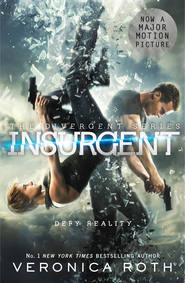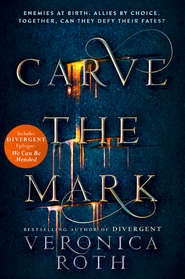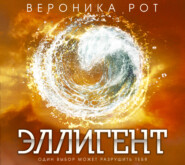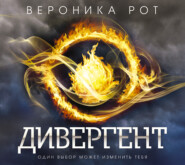По всем вопросам обращайтесь на: info@litportal.ru
(©) 2003-2025.
✖
The Fates Divide
Настройки чтения
Размер шрифта
Высота строк
Поля
“I—” He gulped, and opened his eyes, not looking at his mother, but at the wall opposite him. “I’m sorry I couldn’t stop it. I—I failed him.”
“Akos—” She gripped his shoulder, and he let himself feel the warmth and the strength of her hand for a tick.
The cell that had held Ryzek was scrubbed clean, like nothing had ever happened. In some secret part of himself, he wished Eijeh had died, too. It would be easier than this, the constant reminder of how he’d messed it all up, and couldn’t fix it.
“There’s nothing you—”
“Don’t,” he said, more harshly than he meant to. “He’s gone. And now there’s nothing left to do but—bear it.”
He turned, and left her standing there, caught between two sons who weren’t quite the same as they used to be.
They took turns sitting on the nav deck to make sure the ship didn’t steer straight into an asteroid or another spaceship or some other piece of debris. Sifa had the first shift, since Teka was exhausted from reprogramming the ship in the first place, and Cyra had spent the last several hours mopping up her own brother’s blood. Akos cleared the floor of the galley and rolled out a blanket in the corner, near the medical supplies.
Cyra came to join him, her face scrubbed shiny and her hair in a braid over one shoulder. She lay shoulder to shoulder with him, and for a time neither of them said anything at all, just breathed in time together. It reminded him of being in her quarters on the sojourn ship, how he could always hear when she was up because the tossing and turning stopped and all he could hear were her breaths.
“I’m glad he’s dead,” Cyra said.
He turned to face her, propping himself up on one elbow. She had trimmed the hair neatly around the silverskin. He’d gotten used to it now, shining on one side of her head like a mirror. It suited her, really, even if he hated what had happened to her.
Her jaw was set. She started on the straps of the armor that covered her arm, working them back and forth until they were loose. When she shucked it, there was a new cut on her arm, right near her elbow, with a hash through it. He touched it, lightly, with a fingertip.
“You didn’t kill him,” he said to her.
“I know,” she said. “But the chancellor isn’t going to take note of him, and …” She sighed. “I guess I could have gotten some revenge from beyond death, if I had let him go unmarked. Dishonored him by pretending he never existed.”
“But you couldn’t do that,” Akos supplied.
“I couldn’t,” Cyra agreed. “He’s still my brother. His life is still … notable.”
“And you’re upset that you couldn’t punish him.”
“Sort of.”
“Well, if my opinion counts for anything, I don’t think you need to regret showing some mercy,” he said. “I’m just sorry you went to all the trouble of sparing him for me, and then … it didn’t even matter.”
With a heavy sigh, he slumped to the ground again. Just another way that he’d failed.
She laid a hand on him, right over his sternum, right over his heart, with the scarred arm that said so much and so little about her at once.
“I’m not,” she said. “Sorry, I mean.”
“Well.” He covered her hand with one of his own. “I’m not sorry you’ve got Ryzek’s loss marked on your arm, even though I hated him.”
The corners of her mouth twitched up. He was surprised to find that she had chipped off a little piece of his guilt, and he wondered if he’d done the same for her, in his way. They were both people who carried every scrap of everything around, but maybe they could help each other set things down, piece by piece.
It was good he felt this way, he thought. With Eijeh gone, all that he had left to do was meet his fate, and Cyra and his fate were inextricable. He would die for the family Noavek, and she was the last of them. She was a happy inevitability, brilliant and unavoidable.
Acting on impulse, Akos turned and kissed her. She stuck her fingers in one of his belt loops and pulled him tight against her, the way they had been earlier, when they were interrupted. But the door was closed, now, and Teka was fast asleep in some other part of the ship.
They were alone. Finally.
The chemical-floral smell of the ship was replaced with the smell of her, of the herbal shampoo she’d last used in the ship’s shower, and sweat and sendes leaf. He ran potion-stained fingertips down the side of her throat and across the faint curve of her collarbone.
She pushed him over, so she was straddling him, and pinned his hips down for a tick, just to tug his shirt out from under his waistband. Her hands were so warm against him he could hardly breathe. They found the soft give of flesh around his middle, the taut muscle wrapped around his ribs. She undid buttons all the way up to his throat.
He’d thought of this when he helped her take her clothes off before that bath in the renegade safehouse, how it might be to take off their clothes when they weren’t injured and fighting for their lives. He’d imagined something frantic, but she was taking her time, running her fingers over the bumps of his ribs, the tendons on the inside of his wrists as she freed the buttons on his cuffs, the bones that stuck out of his shoulders.
When he tried to touch her back, she pressed him away. That wasn’t how she wanted it just then, it seemed like, and he was happy to give her what she wanted. She was the girl who couldn’t touch people, after all. It sparked something inside him to know that he was the only one she’d done this with—not excitement, but something softer. Tender.
She was his only—and fate said she would be his last.
She pulled back to look at him, and he tugged at the hem of her shirt.
“May I?” he said. She nodded.
He felt suddenly tentative as he started undoing her shirt buttons, from throat to waist. He sat up just enough to kiss the skin he revealed, izit by izit. Soft skin, for someone so strong, soft over hard muscle and bone and steely nerve.
He tipped them over, so he was leaning over her, leaving just enough space between them to feel her warmth without touching her. He stripped his shirt from his shoulders, and kissed her stomach again. He’d run out of shirt to unbutton.
He touched his nose to the inside of her hip and looked up at her.
“Yes?” he said.
“Yes,” she said roughly.
His hands closed over her waistband, and he ran parted lips over the skin he exposed, izit by izit.
(#ulink_1a35b3fe-ab76-55d3-b60f-2038062a3177)
THE ASSEMBLY SHIP IS the size of a small planet, wide and round as a floater but so much bigger it’s downright alarming. It fills the windows of the little patrol ship that picked up our escape pod, made of glass and smooth, pale metal.
“You’ve never seen it before?” Isae asks me.
“Only images,” I say.
Its clear glass panels reflect the currentstream where it burns pink, and emptiness where it doesn’t. Little red lights along the ship’s borders blink on and off like inhales and exhales. Its movements around the sun are so slight it looks still.
“It’s different in images,” I say. “Much less impressive.”
“I spent three seasons here as a child.” Isae’s knuckles skim the glass. “Learning how to be proper. I had that brim accent—they didn’t like that.”
I smile. “You still do, sometimes, when you forget to care. I like it.”
“You like it because the brim accent is so much like your Hessan one.” She pokes her fingertip into my dimple, and I smack it away.
“Come on,” she says. “Time to dock.”
The ship’s captain, a squat little man with sweat dotting his forehead, noses his little ship toward the massive Assembly one—to secure entrance B, I’d heard him say. The letter was painted above the doors, reflective. Two metal panels pull apart under the B, and an enclosed walkway reaches for our ship’s hatch. Hatch and walkway lock together with a hiss. Another crew member seals the connection with the pull of a lever.
















